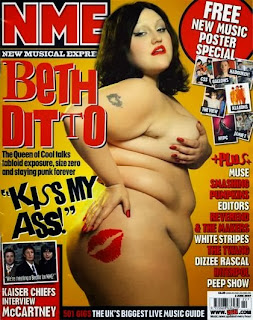Feminism is the belief that men and woman are and have been treated differently by our society and that woman have been frequently been unable to participate fully in social arenas and institutions.
The History and Origins of Feminism
Historically feminism has evolved between the sexes to a deeper focus on the social and performative construction of gender and sexuality. Woman had traditionally been regarded as inferior to men physically and intellectually. In past events woman could not possess property in their own names, engage in business or control the disposal of their children or even their own persons. However over time woman have evolved to have more freedom and have equal rights as men do.
During the 1920s woman in the United States were divided on the question of equal standing with men, which was advocated by the National Woman's Party. This included limiting the number of hours woman could work per week and excluding woman from certain high - risk occupations. Then in 1946 the UN commission on the status of woman was established to secure equal political rights, economic rights and educational opportunities for woman throughout the world. Now the national woman's party and other woman groups pressed for such changes such as abortion rights, equal pay for woman, the occupational upgrading for woman, the removal of all legal and social barriers to education and economic power for woman.
Famous Feminists and their Beliefs
 Florence Nightingale was a famous feminist. She was born in a wealthy family, with parents who expected her to do all the things young ladies of her class did such as taking occasional rides in carriages and attend party's and dinners. However she wanted a higher calling in life. Florence wanted to work and use her intellect, skills and moral passion to make a difference in the world. She decided to become a nurse and help others who were in need. Her decision to do this inspired others to do the same.
Florence Nightingale was a famous feminist. She was born in a wealthy family, with parents who expected her to do all the things young ladies of her class did such as taking occasional rides in carriages and attend party's and dinners. However she wanted a higher calling in life. Florence wanted to work and use her intellect, skills and moral passion to make a difference in the world. She decided to become a nurse and help others who were in need. Her decision to do this inspired others to do the same.There are many famous feminists today including well known singers such as Madonna and other famous celebrities such as Oprah Winfrey and Hilary Clinton. All of these feminists have different views on the way woman are portrayed in todays world and society.
Laura Mulvey Theory (1975)
Laura Mulvey applied the term 'Male Gaze' to her theory in 1975. The concept of gaze is one that deals with how an audience views the people presented in a particular scene or image. In feminism the male gaze can be thought of in 3 different ways. These ways can apply how men look at woman, how woman look at themselves and how woman look at other woman. Laura Mulvey believes that in film, audiences have to view characters from a perspective of a heterosexual male. As audiences watch films without being watched by the characters, they become onlookers of their lives. Therefore in some cases they become voyeurs of the people on the screen. This involves turning the representation of the figure into a fetish.
Here is a video clip from a music video to show as an example on how the Laura Mulvey Theory is applied to scenes.
From analysing this music video the woman presented is seen as a young and attractive figure to look upon. The name of the song 'She's so lovely' also implies how she is presented throughout . At the beginning of the music video she is enhanced and notified by other people as they follow her with their eyes. The singer of the video is seen the dominant gazer upon her as he glares at her the most and refers to her appearance in the lyrics, which makes her character more objectifying to the audience.
However there is some criticism over this theory. For example some woman enjoy being 'looked' at for beauty purposes and the gaze can also be directed towards members of the same gender for several reasons, such as in comparison of body image or in clothing.
Representation of Woman in Music Magazines
Jennifer
Aniston is presented on this magazine front cover of the rolling stones and would
be objectified as being very pretty and attractive to look at. She has been
presented in this way ,in order to catch the ‘male gaze’ and encourage men to buy the
magazine. Therefore this supports the Laura Mulvey theory. Jennifer Aniston
seen on the cover has nothing to do or relate with music. This shows how the
rolling stones have lost their main purpose of the magazine by trying to relate
to men more.
However from looking at this NME Music Magazine front cover, the male audience will have a different perspective as to what is being viewed compared to the rolling stones cover. Beth Ditto shows how woman do not have to be conventionally attractive to be presented on the front page magazine covers. In comparison to the rolling stone magazine, NME has stuck to its roots of music and has not taken away its purpose like the rolling stones. NME has not tried to win male buyers by objectifying woman. Therefore feminists would support this.


No comments:
Post a Comment